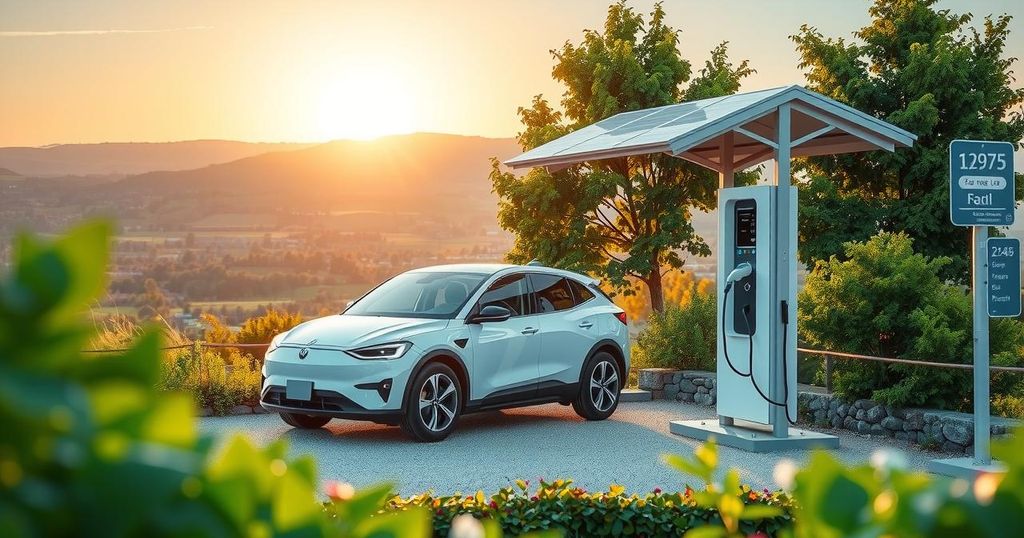South Africa’s Electric Transformation: From Loadshedding to EV Manufacturing Leader
South Africa is shifting from loadshedding to a leading role in electric vehicle (EV) manufacturing, driven by government initiatives and stabilized power supply. The automotive sector is set to capitalize on industrialization opportunities, with strategic trade agreements in place. Investment incentives and infrastructure improvements are critical to supporting this transformative journey, showcasing South Africa’s potential as a key player in the EV space.
Just one year prior, South Africa faced significant loadshedding, making the idea of electric vehicles (EVs) seem unrealistic. Currently, the narrative has transformed, with stable power supply and proactive government measures positioning the nation as a potential leader in the EV manufacturing sector. This development represents a critical opportunity for transformative industrialization, enhancing exports, and promoting economic growth.
The automotive industry in South Africa is a crucial part of its industrial framework, distinguished by its maturity compared to other African nations. This sector hosts various global Original Equipment Manufacturers (OEMs) such as BMW, Toyota, and Nissan. The Automotive Production Development Programme (APDP) aims to elevate production levels and create more job opportunities while striving to establish a globally competitive automotive industry for South Africa’s economic progress.
South Africa’s Electric Vehicles White Paper from the Department of Trade, Industry, and Competition, published in November 2023, acknowledges the profound changes within the global automotive industry, presenting it as a monumental industrial opportunity. The document articulates a vision for South Africa to utilize its manufacturing capability, logistical infrastructure, and strategic trade agreements to harness this opportunity effectively.
The nation enjoys numerous beneficial trade agreements, including the Southern African Development Community (SADC), SADC-EU Economic Partnership Agreement, African Growth and Opportunity Act (AGOA) with the United States, and African Continental Free Trade Area (AfCFTA). The automotive sector is prioritized within AfCFTA, aiming to delineate value chains across Africa and promote collaboration.
To facilitate the shift towards electric vehicles, the White Paper outlines ten critical actions the government is pursuing, including increasing investment, developing an electric battery regional value chain, and implementing temporary reductions in import duties for batteries in locally produced vehicles. More importantly, the recent Taxation Laws Amendment Bill introduces a 150% tax deduction for qualifying assets engaged in EV production from March 2026 to March 2036, providing significant incentives for attracting investment.
The Production Rebate Certificate (PRC) is also seen as a pivotal measure to support local manufacturers by offering duty credits and reducing customs duties linked to local value addition. Furthermore, the rules of origin under AfCFTA will play a crucial role in determining product eligibility for duty-free trade, with South Africa’s Special Economic Zones (SEZs) well-positioned to attract investments as these regulations evolve.
A collaborative ‘hub-and-spoke’ model is advocated by the AfCFTA and the African Automotive Manufacturers Association, emphasizing that no single African nation can achieve full self-sufficiency. This model encourages regional hubs, like South Africa, to assemble vehicles while sourcing components from affiliated countries. African nations such as Kenya, Ghana, Nigeria, Togo, and Ivory Coast are also making strides in e-mobility initiatives.
To realize this vision, it is crucial that South Africa enhances its infrastructure, logistics, and reduces non-tariff barriers to enable the smooth transportation of goods. If these challenges are effectively managed, South African EV manufacturers could successfully export to traditional markets like the US and Europe, while simultaneously catering to the growing demand within Africa.
South Africa’s transformation from loadshedding to an EV manufacturing hub exemplifies its resilience and serves as a model for a sustainable, industrialized future in Africa.
In summary, South Africa’s journey from persistent loadshedding to embracing electric vehicles represents a significant shift in its industrial landscape. With stable power supplies, strategic government initiatives, and beneficial trade agreements, the nation positions itself as a leader in EV manufacturing. The concerted efforts in infrastructure development and regional collaboration will be essential for economic growth and industrial advancement across the continent.
Original Source: www.zawya.com




Post Comment